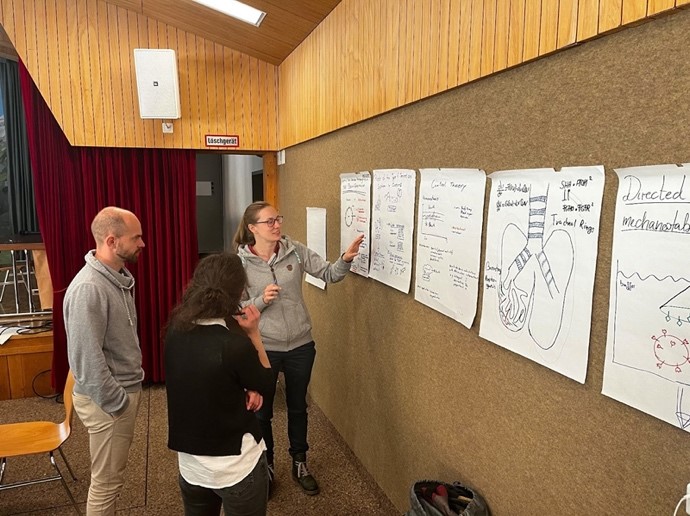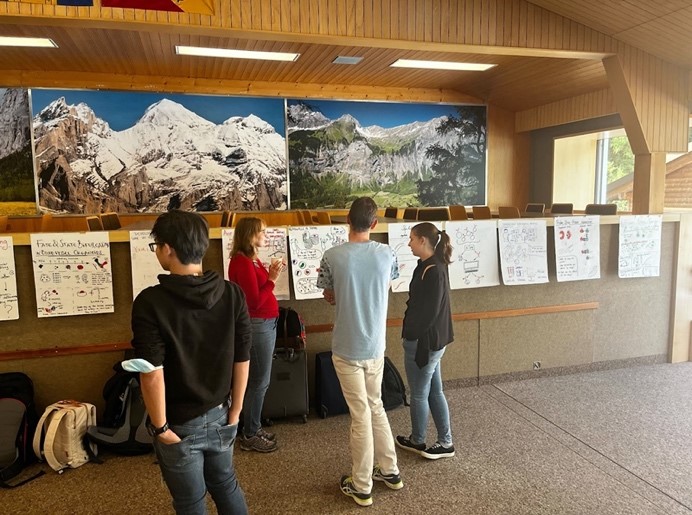Retreat 2021 - Kandersteg
The Location
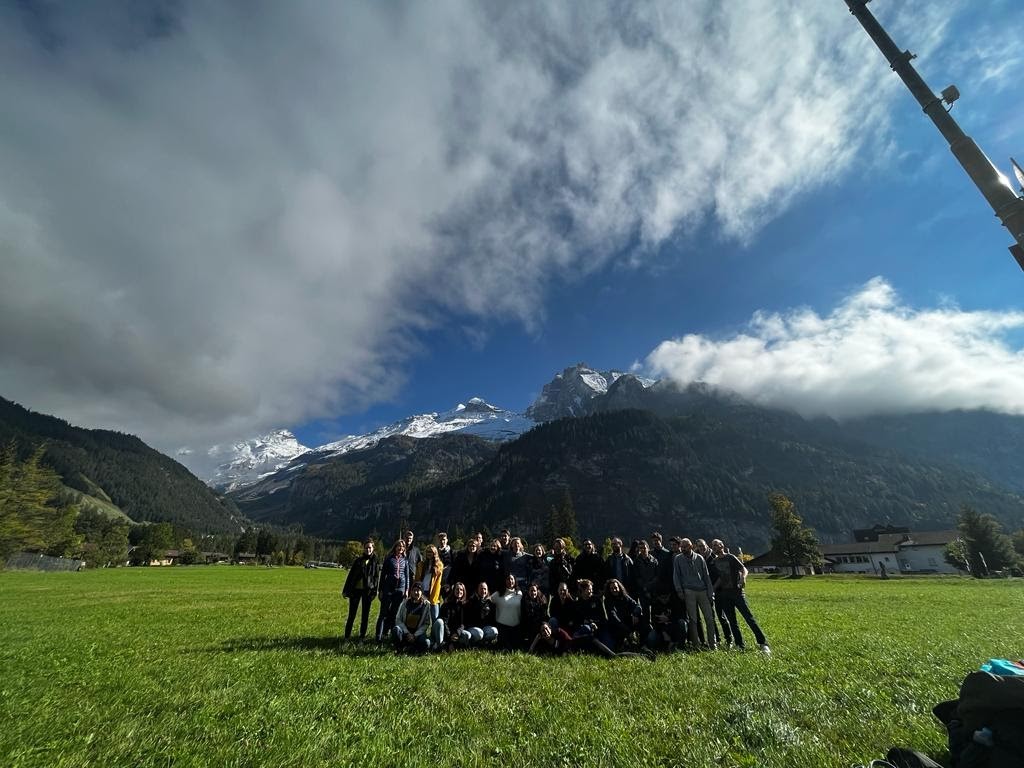
After several postponements caused by the coronavirus pandemic, the 9th Systems Biology PhD retreat could finally take place on the 6-8th October in Kandersteg, Kanton of Bern (Switzerland). Participants and speakers stayed at the Hotel Alfa Soleil, a really cosy hotel with inspiring views of the surrounding landscape and a fantastic catering service. Due to the existing health regulations, talks and workshops took place at the Gemeindesaal Kandersteg, a more spacious location where personal interactions could take place more safely. In addition, all participants and speakers were required to hold valid COVID certificates in order to join the event.
Scientific Program
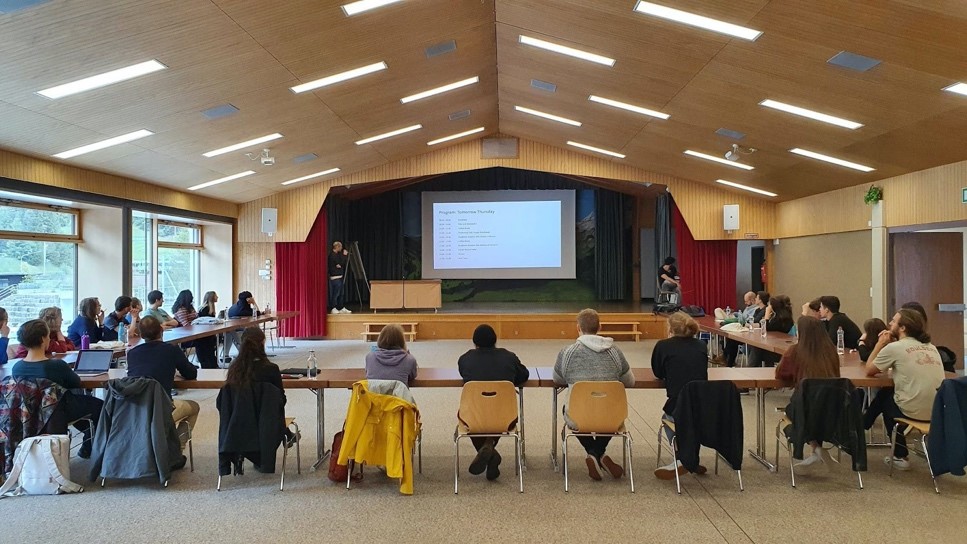
Our scientific program was composed of a series of workshops, scientific talks and career discussions. Darjan Hil and Nicole Lachenmeier (Superdot) imparted a workshop on data visualization from an aesthetic design perspective, while Frédéric Schütz (University of Lausanne) focused his workshop on the correct organization, presentation and communication of scientific data. Holger Breithaupt (EMBO Reports) presented the insights of the editorial world, and Gioele La Manno (EPFL) and Barbara di Ventura (University of Freiburg) explained their most recent achievements - the elaboration of a Developmental single-cell Mouse Brain atlas and the development of BLADE, an optogenetic tool to drive gene expression in E.coli. Finally, Simon Friedensohn (DeepCDR) spiced up the program with the story of his entrepreneurial endeavours and an overview of his work on antibody discovery and optimization.
In addition to these talks, our speakers participated in a career round table where they shared their career experiences and responded to questions from the students, which stimulated a lively discussion that extended over to dinner time.
Student Assignment
To promote scientific exchange and networking among the PhD students, an informal poster session with drinks was held in the evening. Participants were asked to sketch their projects on flip chart paper and walk their peers through their poster with a 3-minute speech. All posters produced were of really high quality and stimulated a vibrant scientific discussion that will surely lead to future collaborations. .
Social program
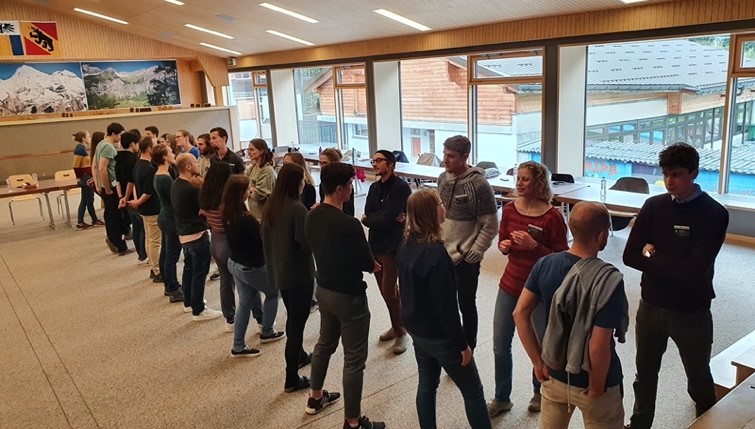
The retreat was kickstarted with a set of energetic ice-breaking games designed to encourage new interactions between students. After this session all participants had met their peers, which facilitated conversations and improved cohesion of the entire group. On the first night participants enjoyed a PubQuiz session, while the second night was animated by karaoke, pool and card games. On the morning of Thursday there was also time for the participants to interact while enjoying the natural scenery - a small hike around Oeschinensee inspired more conversations and sparked new friendships.
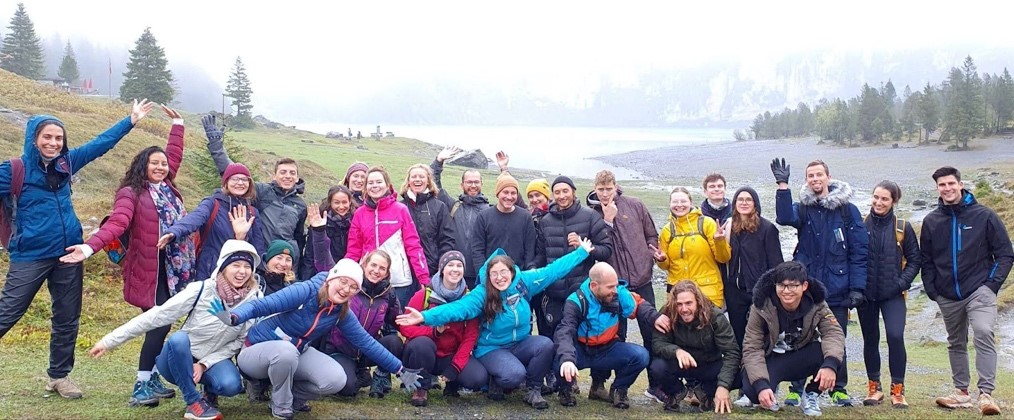
.
The feedback
Overall, the retreat was highly rated, with an overall score of 3.7/4 and 95% of the attendants agreeing on the maximum score for the organizing team. All scientific and social activities were really well received. With a minimum difference, the most popular ones were the Scientific Data Visualization workshop from Dr. Schütz and the group hike. Participants also enjoyed the venue and hotel, and a significant proportion of them showed interest in the organization of the SysBio retreat 2022. Students highlighted in their testimonials how they had the opportunity to learn from and connect with their peers and our external guests, and many of them gained useful insights and received inspiration for their projects and future career development.
Organisers
- Fátima Sanchís Calleja (Treutlein group)
- Jonas Fleck (Treutlein group)
- Margarita Pertseva (Reddy group)
- Max Hess (Pelkmans group)
- Moritz Schäfer (Ciaudo group)
Sponsors
This retreat would not have been possible without the support of our generous sponsors (Roche, external page Kühner Shakers and LSZ Graduate School) and the Interdisciplinary PhD program Systems Biology from ETH Zürich and University of Zürich.
